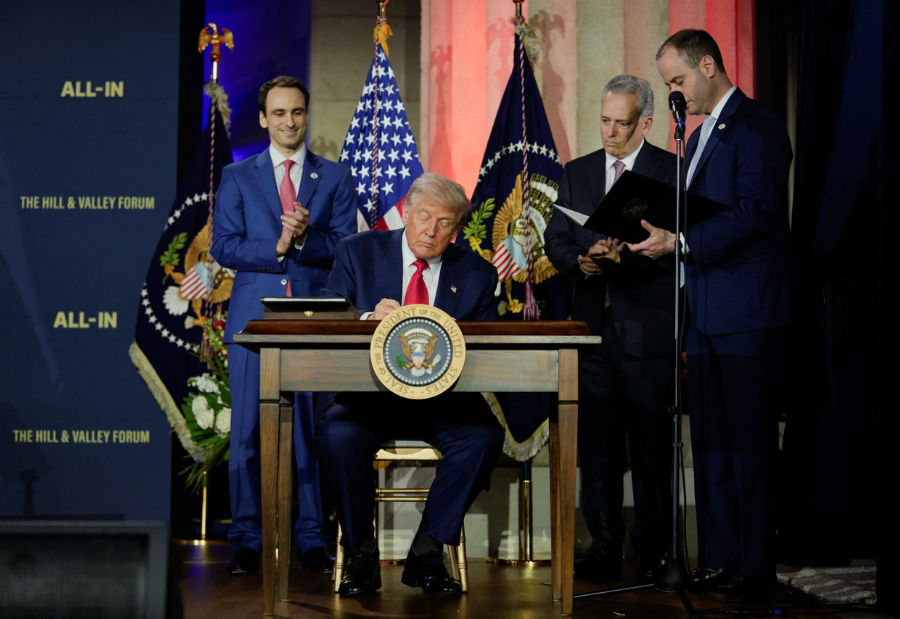The Trump administration on Wednesday proposed a new set of export control measures that would require verifying the location of advanced artificial intelligence (AI) chips. The move is part of a broader AI policy framework aimed at strengthening national security and expanding AI trade with U.S. allies. The recommendation received strong bipartisan support from lawmakers in both the House and Senate.
The new AI blueprint suggests increasing exports of AI hardware and software to trusted allies while also relaxing environmental regulations to speed up the building of AI data centers across the U.S.
At the same time, the plan maintains the current policy of restricting access to advanced U.S.-made AI chips—produced by companies such as Nvidia and AMD—for countries considered foreign adversaries. It emphasized that the government should “explore leveraging new and existing location verification features on advanced AI compute to ensure that the chips are not in countries of concern.”
This policy recommendation was welcomed by lawmakers who had earlier proposed legislation requiring post-sale location verification for AI chips. These efforts were prompted by worries that restricted chips were still being accessed by countries like China, where their export is officially banned.
“I was encouraged to see that the recommended export control policy includes location verification mechanisms and aligns closely with our bipartisan Chip Security Act. I look forward to learning more of the technical details and next steps for end-use verification,” said Representative Bill Foster, a Democrat from Illinois, who co-introduced the chip-tracking bill in May.
“Senator Cotton was pleased to see verification included in President Trump’s AI Action Plan, as it’s a vital part of his bipartisan, bicameral Chip Security Act and an important tool to keep advanced American technology out of the hands of Communist China,” added Patrick McCann, spokesperson for Senator Tom Cotton, a Republican from Arkansas who introduced a similar bill in the Senate.
However, key details such as the implementation method, technical feasibility, and additional costs of the proposed verification mechanisms are still unclear. These issues will need to be addressed both in the upcoming legislation and within the administration’s recommendations.
The administration’s push for tighter controls reflects growing concern over the misuse of AI technology and the importance of keeping sensitive computing power out of the hands of geopolitical rivals.
Also read: Viksit Workforce for a Viksit Bharat
Do Follow: The Mainstream formerly known as CIO News LinkedIn Account | The Mainstream formerly known as CIO News Facebook | The Mainstream formerly known as CIO News Youtube | The Mainstream formerly known as CIO News Twitter |The Mainstream formerly known as CIO News Whatsapp Channel | The Mainstream formerly known as CIO News Instagram
About us:
The Mainstream formerly known as CIO News is a premier platform dedicated to delivering latest news, updates, and insights from the tech industry. With its strong foundation of intellectual property and thought leadership, the platform is well-positioned to stay ahead of the curve and lead conversations about how technology shapes our world. From its early days as CIO News to its rebranding as The Mainstream on November 28, 2024, it has been expanding its global reach, targeting key markets in the Middle East & Africa, ASEAN, the USA, and the UK. The Mainstream is a vision to put technology at the center of every conversation, inspiring professionals and organizations to embrace the future of tech.




